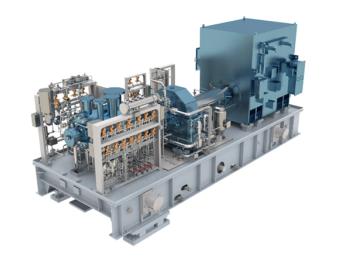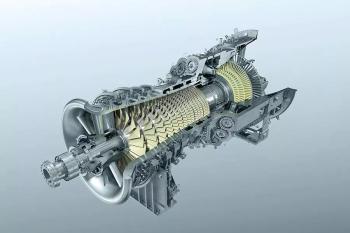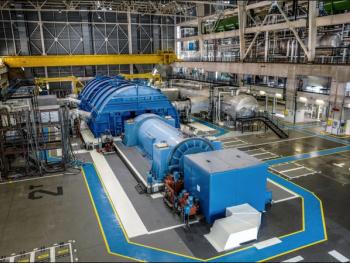
Methanol-fueled SGT-A35 Gas Turbine Reduces NOx up to 80%, Says Siemens Energy, NZTC
Methanol as an alternative fuel can cut CO2 emissions between 10 – 95% depending on how it’s produced.
Net Zero Technology Centre (NZTC) and Siemens Energy partnered on a recent demonstration of alternative fuels for decarbonization: The duo successfully operated an SGT-A35 gas turbine on methanol, demonstrating a decrease in NOx of up to 80%.
“This is a key milestone and a great result for the Alternative Fuel Gas Turbine project, which was only possible through outstanding collaboration with government and industry,” said Charlie Booth, Project Manager at NZTC.
Siemens Energy manufactured and installed the new components that were needed for the methanol-fuel conversion using 3D printing techniques. Gas turbines currently in use can be retrofitted to use alternative fuels such as methanol with minor modifications.
“Methanol’s unique properties make it an exceptional choice as a retrofittable, low-carbon alternative fuel, and it is great that we can showcase the opportunity that exists in adapting existing infrastructure to meet our net-zero targets and energy needs,” Booth said.
Methanol is advantageous as an alternative to fossil fuels because of how it’s produced from various feedstock, including:
- lower carbon intensities using carbon capture and storage (blue methanol)
- biogenic sources (bio-methanol)
- green hydrogen and captured CO2 (e-methanol)
Methanol produced from natural gas can reduce CO2 emissions by 10% compared to traditional liquid fuels whereas renewable methanol reduces CO2 emissions by up to 95%. All forms of methanol significantly reduce other emissions, including NOx, PM, SO2, and smoke.
“This is another significant step as we transition to a clean-energy future in the North Sea,” said Darren Davidson, VP of Siemens Energy UK&I. “The turbine’s successful operation on methanol marks a pivotal moment in our journey toward sustainable energy. This achievement not only highlights the versatility and adaptability of our turbines but also underscores the practical steps we can take to reduce CO2 emissions in difficult-to-decarbonize industries.”
The demonstration took place at the RWG facility in Aberdeen, United Kingdom, and was witnessed by methanol producer Proman, who contributed the methanol fuel for the test.
In 2023, NZTC and Siemens Energy conducted a demonstration of an SGT-A20 turbine running on bio-methanol. This showed CO2 emissions could be reduced by up to 75% compared to conventional fuels.
“The use of methanol as a cleaner alternative fuel for power generation is growing, driven by its efficient combustion, ease of last mile distribution, and global availability,” said Timothy Cornelius, Managing Director of Corporate Development, Proman. “It is a versatile and affordable solution to meet emissions reduction targets, significantly reducing airborne pollutants, as proven by these latest test results.”
Newsletter
Power your knowledge with the latest in turbine technology, engineering advances, and energy solutions—subscribe to Turbomachinery International today.




